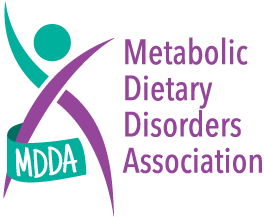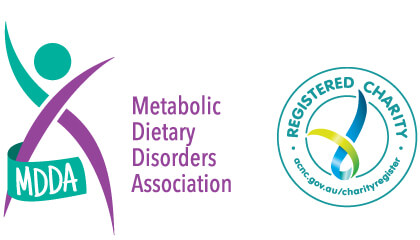
Sapropterin and Pegvaliase Announcements – What’s Next?

As many of you are aware the outcomes of the PBAC consideration of sapropterin and pegvaliase were announced two weeks ago. MDDA is continuing to work to ensure access as soon as possible. Here is a response to some frequently asked questions?
Will sapropterin (Kuvan) be available to all adults?
No, sapropterin is only available to people who are responsive to this treatment. Around 30-40% of people with PKU are responsive to sapropterin. Some adults will already know if they are responsive because they have had responsiveness testing through a clinical trial, as an adolescent, as part of preconception planning or as part of a research protocol. All other adults who are interested in this treatment will need to complete a responsive test that is determined by the PBAC in consultation with clinical experts and based on research.
When will I be able to do a responsiveness test or start sapropterin if I know I am responsive?
There is a not an exact timeframe as there are several complex processes to be complete before sapropterin is officially listed on the PBS and these can take upwards from 6 months. When sapropterin was recommended for children it took 7 months for it to be listed on the PBS and this required some strong advocacy from MDDA to keep the process moving. MDDA has already had preliminary conversations with the sponsor (BioMarin) and representatives from the PBAC to try and ensure earliest possible access.
What is responsiveness testing?
It is a process that will be supervised by your specialist metabolic clinic to determine whether or not you respond to sapropterin. Another name for sapropterin is BH4 and specialist metabolic clinicians in Australia have developed this guideline for its use with Australian patients. This guideline gives a broad indication of some approaches to responsiveness testing however this will be looked at during the PBS listing process and may be changed. Your clinic will be able to advise the exact protocol once sapropterin is listed and accessible on the PBS.
How will I know when sapropterin is listed on the PBS and I can discuss responsive testing or starting treatment with my clinic?
MDDA will maintain contact with the PBAC and the sponsor and provide updates as soon as they become available. If you do not know much about the treatment or have questions you may wish to start discussing these with your clinic at your next appointment.
I know I am not responsive to sapropterin, what is happening with pegvaliase (Palynziq)?
As you are aware pegvaliase was not recommended by the PBAC, however the public announcement acknowledged that there is unmet clinical need and a clinical place for this treatment for adults. If a treatment is not recommended by the PBAC it means that the sponsor would need to make a new submission addressing the reasons for the decision, these will be outlined in a public summary document that will be available later this year. MDDA will use this to help develop our ongoing advocacy strategy for pegvaliase and other emerging treatments. The sponsor (BioMarin) is the only body that can make a new submission and it is at their discretion. MDDA has already opened discussions with both the sponsor and the PBAC regarding next steps for pegvaliase. An important next step is making our parliamentary representatives aware of this decision and what it means for PKU patients, we will ask your help with this shortly and provide some resources to help you to do this. Vice president, Louise Healy is attending a Medicines Australia event that will look at patient access in Canberra on 13 September and will use the opportunity to raise the difficulties in getting access to rare disease therapies with key parliamentarians.
What can I do to help?
You can ask for a meeting with your federal MP to discuss the difficulties is getting access to rare disease therapies highlighting how long it has taken for sapropterin (Kuvan) to be approved and discuss the need for the government to look at policies to help rare disease therapies to be available more quickly for Australians. MDDA is preparing a guide to do this and what points to raise.
More Information
If you would like to be kept informed about the latest updates and next steps with testing as they become known please ensure your contact details are up to date with MDDA and follow our website and Facebook.
MDDA’s position is that all Australians living with PKU should have access to all treatments that have been approved as safe and effective by the Therapeutic Goods Administration (TGA).
All correspondence to [email protected]
